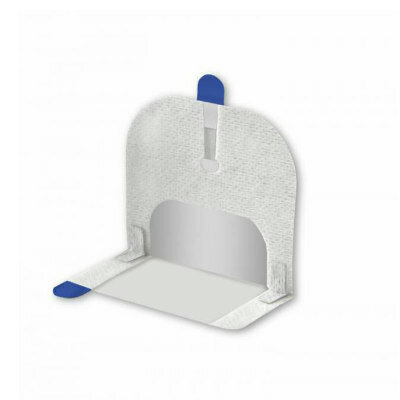Bayer and Google Partner on New AI Product for Radiologists
|
By MedImaging International staff writers Posted on 10 Apr 2024 |

Medical imaging data comprises around 90% of all healthcare data, and it is a highly complex and rich clinical data modality and serves as a vital tool for diagnosing patients. Each year, billions of medical images are scanned across the world and this number continues to grow, increasing the workload of radiologists and healthcare professionals responsible for handling and interpreting these images for clinicians and patients. There is a need to develop and maintain new supportive artificial intelligence (AI) tools to efficiently handle and analyze the huge amount of data. Now, a new innovation platform aims to help organizations develop AI-powered apps to assist radiologists, reduce burnout and support more efficient diagnoses.
Bayer (Leverkusen, Germany) and Google Cloud (Mountain View, CA, USA) have entered into a collaboration to develop AI solutions that can support radiologists and better serve patients. As part of the collaboration, Bayer will further develop its innovation platform to speed up the development and deployment of AI-powered healthcare applications with a clear focus on radiology, using Google Cloud's technology, including its generative AI (gen AI) tools. The collaboration aims to help overcome several challenges faced by organizations in building scalable and compliant AI-powered medical imaging software products using leading data security capabilities and speed up the development of potentially groundbreaking and impactful solutions that can benefit patients.
Bayer's innovation platform provides a cloud-native pipeline from product idea to launch. Users can uncover insights with AI-powered data analysis, and help design breakthrough healthcare solutions by accessing a data ecosystem, as well as using intelligent search and data preparation capabilities. Additionally, users can explore and extract information from regulations and scientific papers, all within a collaboration platform with the latest data security capabilities. Developers can also scale and engineer solutions using gen AI assistance for ideation, development, validation, and lifecycle management; generate documents in alignment with healthcare requirements to aid in gaining regulatory approval; leverage medical imaging core lab services from Bayer for clinical performance evaluation. Healthcare and life science companies can deploy gen AI medical solutions standardized for flexible integration across compatible healthcare systems; and analyze field data for insights, bias detection, and continuous improvement.
The platform is built on Google Cloud and uses tools like Vertex AI, BigQuery, Healthcare API, and Chronicle. Bayer's platform is designed to help bring innovative medical imaging tools to market faster and more cost-effectively. The company plans to make the first version for extended testing available later this year in the EU and US. By combining Bayer's deep radiology, healthcare regulatory, and clinical data handling expertise with Google's technology leadership in gen AI and other fields, the partnership has the potential to significantly impact the healthcare ecosystem, by improving patient outcomes, lowering costs, and accelerating innovation. The expanded collaboration on the new innovation platform builds upon a long-standing partnership between Bayer and Google Cloud across a wide range of technologies and efforts, including accelerating drug discovery and supporting patient diagnosis. Bayer and Google Cloud are also working together on responsible AI adoption to transform patient care across the world.
"Radiology plays a vital role in healthcare, and the need to efficiently and accurately uncover insights and deliver solutions at scale that can improve patient outcomes has never been greater," said Nelson Ambrogio, president, of Radiology at Bayer. "Bayer has a heritage in radiology with decades of contributions to radiological research and innovation. Through the collaboration with Google Cloud, our joint efforts will help organizations in the healthcare and life science industry transform the growing amounts of data into valuable and impactful insights, saving radiologists time and helping them optimize their important work for the benefit of patients."
"Radiologists and other clinicians face burnout due to the sheer volume of work they face every day. Gen AI can help tackle repetitive tasks and provide insights into massive data sets, saving valuable time and helping to positively impact patient outcomes," said Thomas Kurian, CEO of Google Cloud. "We look forward to our continued collaboration with Bayer as it shapes the future of diagnostics and helps its customers deliver insights to patients with greater accuracy and speed."
Latest Industry News News
- Samsung and Bracco Enter Into New Diagnostic Ultrasound Technology Agreement
- IBA Acquires Radcal to Expand Medical Imaging Quality Assurance Offering
- International Societies Suggest Key Considerations for AI Radiology Tools
- Samsung's X-Ray Devices to Be Powered by Lunit AI Solutions for Advanced Chest Screening
- Canon Medical and Olympus Collaborate on Endoscopic Ultrasound Systems
- GE HealthCare Acquires AI Imaging Analysis Company MIM Software
- First Ever International Criteria Lays Foundation for Improved Diagnostic Imaging of Brain Tumors
- RSNA Unveils 10 Most Cited Radiology Studies of 2023
- RSNA 2023 Technical Exhibits to Offer Innovations in AI, 3D Printing and More
- AI Medical Imaging Products to Increase Five-Fold by 2035, Finds Study
- RSNA 2023 Technical Exhibits to Highlight Latest Medical Imaging Innovations
- AI-Powered Technologies to Aid Interpretation of X-Ray and MRI Images for Improved Disease Diagnosis
- Hologic and Bayer Partner to Improve Mammography Imaging
- Global Fixed and Mobile C-Arms Market Driven by Increasing Surgical Procedures
- Global Contrast Enhanced Ultrasound Market Driven by Demand for Early Detection of Chronic Diseases
- Use of Advanced Imaging Surges in Emergency Departments
Channels
Radiography
view channel
Novel Breast Imaging System Proves As Effective As Mammography
Breast cancer remains the most frequently diagnosed cancer among women. It is projected that one in eight women will be diagnosed with breast cancer during her lifetime, and one in 42 women who turn 50... Read more
AI Assistance Improves Breast-Cancer Screening by Reducing False Positives
Radiologists typically detect one case of cancer for every 200 mammograms reviewed. However, these evaluations often result in false positives, leading to unnecessary patient recalls for additional testing,... Read moreMRI
view channel
PET/MRI Improves Diagnostic Accuracy for Prostate Cancer Patients
The Prostate Imaging Reporting and Data System (PI-RADS) is a five-point scale to assess potential prostate cancer in MR images. PI-RADS category 3 which offers an unclear suggestion of clinically significant... Read more
Next Generation MR-Guided Focused Ultrasound Ushers In Future of Incisionless Neurosurgery
Essential tremor, often called familial, idiopathic, or benign tremor, leads to uncontrollable shaking that significantly affects a person’s life. When traditional medications do not alleviate symptoms,... Read more
Two-Part MRI Scan Detects Prostate Cancer More Quickly without Compromising Diagnostic Quality
Prostate cancer ranks as the most prevalent cancer among men. Over the last decade, the introduction of MRI scans has significantly transformed the diagnosis process, marking the most substantial advancement... Read moreUltrasound
view channel
Deep Learning Advances Super-Resolution Ultrasound Imaging
Ultrasound localization microscopy (ULM) is an advanced imaging technique that offers high-resolution visualization of microvascular structures. It employs microbubbles, FDA-approved contrast agents, injected... Read more
Novel Ultrasound-Launched Targeted Nanoparticle Eliminates Biofilm and Bacterial Infection
Biofilms, formed by bacteria aggregating into dense communities for protection against harsh environmental conditions, are a significant contributor to various infectious diseases. Biofilms frequently... Read moreNuclear Medicine
view channel
New SPECT/CT Technique Could Change Imaging Practices and Increase Patient Access
The development of lead-212 (212Pb)-PSMA–based targeted alpha therapy (TAT) is garnering significant interest in treating patients with metastatic castration-resistant prostate cancer. The imaging of 212Pb,... Read moreNew Radiotheranostic System Detects and Treats Ovarian Cancer Noninvasively
Ovarian cancer is the most lethal gynecological cancer, with less than a 30% five-year survival rate for those diagnosed in late stages. Despite surgery and platinum-based chemotherapy being the standard... Read more
AI System Automatically and Reliably Detects Cardiac Amyloidosis Using Scintigraphy Imaging
Cardiac amyloidosis, a condition characterized by the buildup of abnormal protein deposits (amyloids) in the heart muscle, severely affects heart function and can lead to heart failure or death without... Read moreGeneral/Advanced Imaging
view channel
New AI Method Captures Uncertainty in Medical Images
In the field of biomedicine, segmentation is the process of annotating pixels from an important structure in medical images, such as organs or cells. Artificial Intelligence (AI) models are utilized to... Read more.jpg)
CT Coronary Angiography Reduces Need for Invasive Tests to Diagnose Coronary Artery Disease
Coronary artery disease (CAD), one of the leading causes of death worldwide, involves the narrowing of coronary arteries due to atherosclerosis, resulting in insufficient blood flow to the heart muscle.... Read more
Novel Blood Test Could Reduce Need for PET Imaging of Patients with Alzheimer’s
Alzheimer's disease (AD), a condition marked by cognitive decline and the presence of beta-amyloid (Aβ) plaques and neurofibrillary tangles in the brain, poses diagnostic challenges. Amyloid positron emission... Read more.jpg)
CT-Based Deep Learning Algorithm Accurately Differentiates Benign From Malignant Vertebral Fractures
The rise in the aging population is expected to result in a corresponding increase in the prevalence of vertebral fractures which can cause back pain or neurologic compromise, leading to impaired function... Read moreImaging IT
view channel
New Google Cloud Medical Imaging Suite Makes Imaging Healthcare Data More Accessible
Medical imaging is a critical tool used to diagnose patients, and there are billions of medical images scanned globally each year. Imaging data accounts for about 90% of all healthcare data1 and, until... Read more


















